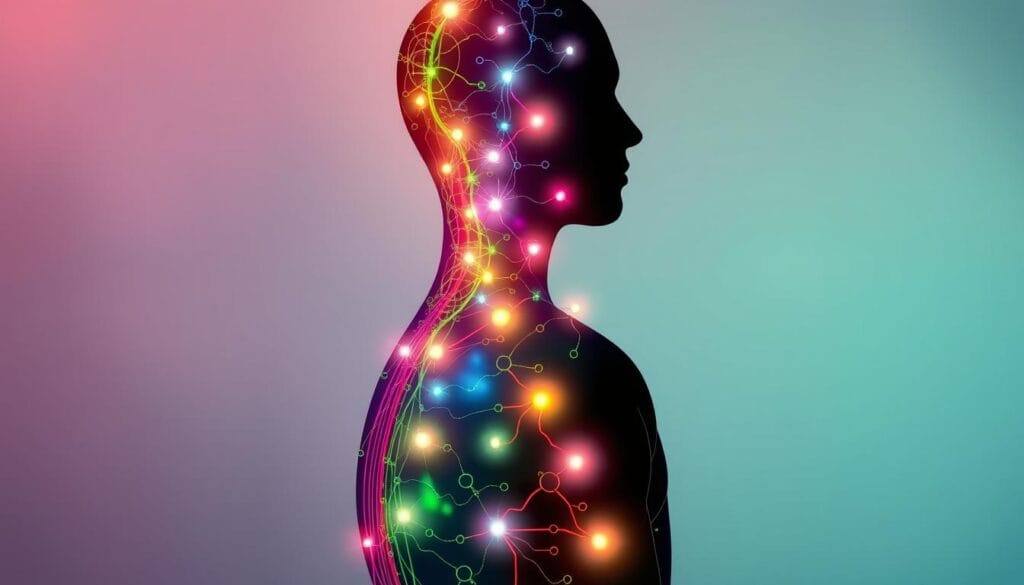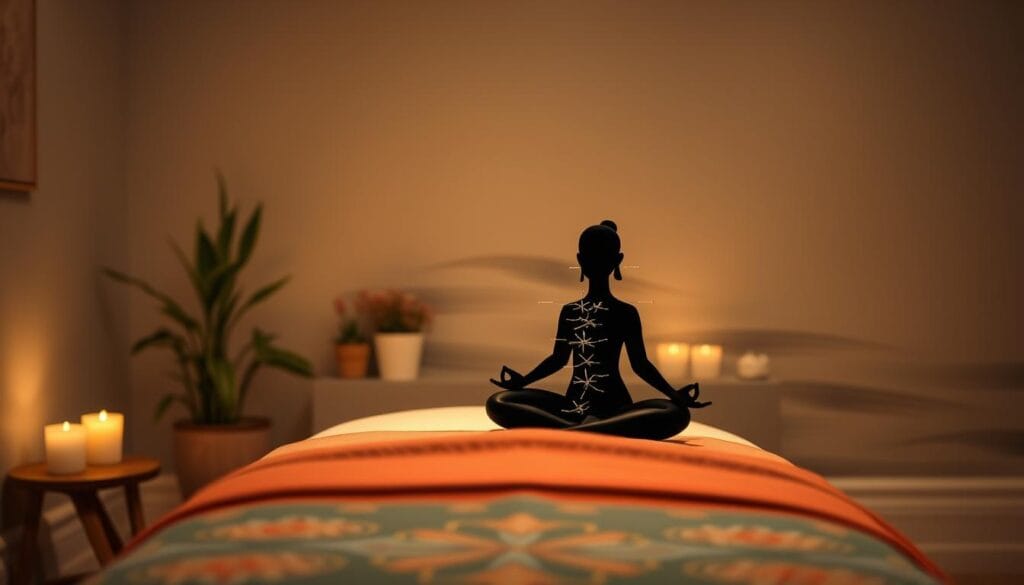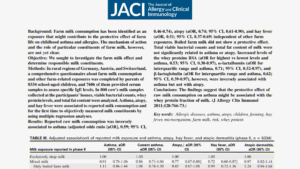אקופונקטורה היא חלק מרכזי של רפואה סינית מסורתית. היא משתמשת ב- מחטים דקים כדי לעורר נקודות גוף מסוימות הנקראות נקודות אקופונקטורה. מטרת התרגול העתיק הזה היא לשחזר איזון ולקדם ריפוי.
אקופונקטורה מתמקדת בנקודות לאורך מסלולי האנרגיה של הגוף, או מרידיאנים. היא מנסה לשפר את זרימת הצ'י, הכוח החיוני שלנו. טכניקה זו טופלת בבריאות פיזית, נפשית ורגשית.
הרבים נפנים כיום לאקופונקטורה לטיפול בבעיות בריאות שונות. היא משמשת לכאבי כרוניים, להקלה ממתח, ולתמיכה ברצון להיריון. מאמר זה יחקור את ההיסטוריה, הפעולה והיתרונות של האקופונקטורה.
מסרים מרכזיים
- אקופונקטורה היא פרקטיקה בתחום רפואה סינית מסורתית המשלבת הכנת מחטים דקים בנקודות מסוימות בגוף כדי לקדם ריפוי ואיזון.
- הפרקטיקה מבוססת על המושג של צ'י, או כוח החיים החיוני, הזורם דרך מרידיאנים בגוף.
- האקופונקטורה רכשה פופולריות כגישת ריפוי הוליסטית וכ טיפול אלטרנטיבי בעולם המערבי.
- היא משמשת לטיפול במגוון רחב של מצבים, כולל כאב כרוני, לחץ, חרדה, בעיות עיכול ובעיות פוריות.
- המאמר יחקור את ההיסטוריה, המנגנונים והיתרונות של האקופונקטורה בפרט.
מהו האקופונקטורה?
האקופונקטורה היא שיטת ריפוי עתיקה. היא משתמשת ב מחטים דקים המוכנסים לנקודות גוף ספציפיות הנקראות נקודות האקופונקטורה. הטכניקה מטרתה לקדם ריפוי ולשחזר איזון.
הרפואה הסינית המסורתית מאמינה בנתיבי אנרגיה הנקראים מרידיאנים. אנרגיה חיונית, או צ'י, זורמת דרך המרידיאנים אלו. האקופונקטורה מטרתה להסיר חסימות ולקדם זרימת צ'י חלקה.
הגירוש הזה מפעיל את תגובת הריפוי הטבעית של הגוף. זה עוזר להקל על כאב, להפחית דלקת ולשפר את הרווחה הכללית. האקופונקטורה מטפלת בגוף כמערכת מחוברת.
ממטפלים לשקול יחסים בין רקמות, רגשות וסימפטומים פיזיים. הם יועצים לטפל בגורמי הגורם לבעיות בריאות. הגישה הזו עוברת על טיפול בסימפטומים בלבד.
"האקופונקטורה היא דרך בטוחה ויעילה לקידום ריפוי ואיזון בתוך הגוף, הנפש והרוח." – ד"ר ליסה וונג, אקופונקטוריסטית מורשת
במהלך הטיפול, המטופלים שוכבים על שולחן נוח. המטפל מכניס מחטים דקים לנקודות ספציפיות בגוף. המחטים הללו נשארים במקום בדרך כלל במשך 20 עד 30 דקות.
המטופלים נוטים לחוות רגיעה עמוקה ורגוע תוך טיפול. האקופונקטורה עשויה גם לכלול טכניקות אחרות מלבד הכנסת מחטים.
- מוקסיבושן: שימוש בהכנות צמחיות מחוממות כדי לחמם נקודות אקופונקטורה ולקדם ריפוי
- כוסות: הנחת כוסות זכוכית או פלסטיק כדי ליצור ספיגה בעור, לשפר זרימת דם ולהפחית כאב
- אלקטרואקופונקטורה: שימוש בזרמים חשמליים עדינים כדי לעורר
נקודות האקופונקטורה, משפרות את השפעת הכניסה המסורתית של המחט
האקופונקטורה מרוויחה תהיה כמטפלת משלימה. היא עוזרת בכאבי כרוניים, בבעיות עיכול, בלחץ ובחרדה. המחקר ממשיך לחקור את היעילות שלה.
מספר גדל של אנשים נפנים לתרגול העתיק הזה. הם מחפשים לקדם איזון ורווחה בחייהם.
ההיסטוריה ומקורות האקופונקטורה
האקופונקטורה היא חלק מרכזי ברפואה סינית מסורתית. לה יש היסטוריה עשירה המתמשכת אלפי שנים. אמנות הריפוי העתיקה הזו החלה בסין לפני מעל 2500 שנה.
הרפואה הסינית מתמקדת באיזון של האנרגיה החיונית של הגוף, הנקראת צ'י. האקופונקטורה פותחה לצד הרפואה והפילוסופיה הסינית. היעד הוא לשחזר הרמוניה בגוף.
הרפואה הסינית העתיקה
ה-קנון הפנימי של הקיסר הצהוב הוא טקסט חיוני ברפואה הסינית. כנראה נכתב בסביבות 475-221 לפני הספירה. העבודה הזו יסדה את היסודות לתיאוריה ולתרגול של האקופונקטורה.
הקנון הפנימי חוקר את יין ויאנג, חמשת היסודות, ומערכת הצינורות. מושגים אלה מרכזיים ברפואה המזרחית. הם מהווים את הבסיס להבנת הבריאות והחולי.

הקנון הפנימי מתאר את הגוף כגרסה קטנה של היקום. הוא אומר כי צ'י זורם דרך ערוצים הנקראים צינורות. נקודות האקופונקטורה הן נקודות לאורך הצינורות אליהן ניתן לגשת לצ'י.
הטקסט מסביר כיצד להשתמש באקופונקטורה כדי לשחזר איזון ולקדם ריפוי. הוא מכסה טכניקות כמו הכנת מחט, מוקסיבושן, וכוסות. טכניקות אלה יכולות לטפל במגוון בעיות בריאותיות.
התפשטות האקופונקטורה למערב
האקופונקטורה הייתה לא ידועה במערב עד למאה ה-20. היא קיבלה תשומת לב בשנות ה-70 כאשר סין פתחה לעולם. חווייתה של כתב העת ניו יורק טיימס עם האקופונקטורה בסין עוררה עניין מערבי.
ככל שהמחקר על האקופונקטורה גדל, רופאים מערביים התחילו להשתמש בה יותר. כיום, זו תרפיה תוספתית מוכרת. מיליונים בכל העולם נהנים מהשפעות הריפוי שלה.
"האקופונקטורה היא רכיב מרכזי של הרפואה הסינית המסורתית שזכתה להכרה גלובלית ביכולתה לקדם ריפוי ולהקל על מגוון רחב של מצבי בריאות."
ההיסטוריה של האקופונקטורה מראה על חכמתה הנצחית של הרפואה הסינית העתיקה. היא נשמרת גם בזמנים המודרניים. התרגול ממשיך להתפתח ולהתמזג עם הרפואה המערבית.
הגישה ההוליסטית הזו מציעה תקווה למספר רב של אנשים המחפשים בריאות טובה יותר. היא מספקת רווחה למגוון רחב של מצבים. המורשת הנצחית של האקופונקטורה מדברת על יעילותה ועל ערכה.
איך האקופונקטורה עובדת
האקופונקטורה משתמשת במחטות דקות שמוכנסות לנקודות גוף ספציפיות הנקראות נקודות האקופונקטורה. הנקודות הללו נמצאות לאורך מרידינים, תעלות בהן זרם האנרגיה של הצ'י זורם. השיטה מטרתה לאזן את הצ'י ולשפר את הריפוי הטבעי של הגוף.
עידון נקודות האקופונקטורה
מטפלי האקופונקטורה מניחים מחטים בנקודות האקופונקטורה בדיוק. העומק משתנה בהתאם לאפקט הרצוי. ה-עידון הזה עשוי לגרום לתגובות שמקלות על כאב ומפחיתות דלקת.

איזון אנרגיית הצ'י
ברפואה סינית, הצ'י הוא הכוח החיוני שזורם באמצעות המרידיאנים. צ'י שנפרץ עשוי לגרום לבעיות בריאות. האקופונקטורה פועלת לשחזר איזון על ידי עידון של נקודות ספציפיות.
השיטה הזו עוסקת בבעיות בריאות שונות. היא עשויה לעזור בכאב כרוני, בבעיות עיכול ובאי-איזון רגשי.
גרירת תגובת הריפוי הטבעית של הגוף
האקופונקטורה מעודדת את שחרור ה-אנדורפינים. כימיקלים אלה מקלים על כאב בצורה טבעית ומשפרים מצב רוח. זה עשוי להפחית כאב ולשפר את הרווחה הכללית.
התרגול מחזק גם את פעילות המערכת החיסונית. זה מסדר תאי דם לבנים ואנטיגונים. זה עושה את הגוף יותר עמיד למחלות ולמחלות.
| מנגנון הדיקור | השפעה על הגוף |
|---|---|
| עידוד נקודות הדיקור | מפעיל תגובות פיזיולוגיות, מפחית כאב ודלקת |
| איזון זרימת ה־qi | מחזיר שלווה וטופל בעיות בריאות שונות |
| שחרור אנדורפינים | מספק רווחת כאב טבעית ומשפר מצב רוח |
| חיזוק פעולת החיסון | משפר את עמידות הגוף למחלות ולמחלות |
אקופונקטורה מעודדת ריפוי ומאיזה את האנרגיה של הצ'י. היא תורמת לרווחה כללית. הבנת היתרונות שלה עשויה לעזור לך להחליט האם היא מתאימה לך כחלק מהטיפול הרפואי שלך.
היתרונות של אקופונקטורה
אקופונקטורה מציעה הרבה יתרונות לרווחת הגוף והרגשות. היא מפחיתה כאב, מקלה על מתח ומשפרת עיכול. המומחיות העתיקה הזו גם מעלה את הרמות של פוריות ומקדמת איזון רגשי.
אקופונקטורה מספקת הקלה טבעית לכאב ללא תרופות. היא מפעילה אנדורפינים, כלי הרפואה הטבעיים של הגוף. זה עוזר להפחית את הכאב מבעיות גב כרוניות, כאבי ראש ודלקת פרוקים.

אקופונקטורה מפחיתה באופן יעיל מתח ומקדמת רגיעה. הכניסה העדינה של המחט מרגיעה את המוח ומקלה על חרדה. ישיבות קבועות עשויות לשפר את איכות השינה ולשפר את הבריאות הרגשית הכללית.
"אקופונקטורה הייתה שינוי משחק עבורי בניהול הכאבים הכרוניים שלי ובהפחתת רמות הלחץ. אני מרגישה יותר מאוזנת ומקשיבה לגופי לאחר כל טיפול." – שרה, מטופלת באקופונקטורה
האקופונקטורה מועילה מאוד לבריאות העיכול. היא מסדרת את פעולת מערכת העיכול ומקלה על תסמינים כמו נפיחות וסיבולת. התרגיל הזה משפר את תנועת המעי ומפחית דלקת, מה שמביא לעיכול טוב יותר.
לזוגות עם בעיות פוריות, האקופונקטורה יכולה להיות ערך מוסף. היא משפרת זרימת דם לאיברי התרבות ומאזנת הורמונים. זה עשוי להגביר את הסיכויים להיתקלות ולתמוך בהיריון בריא.
- מפחית כאבים כרוניים ודלקת
- מקל על לחץ, חרדה, ומעודד רגיעה
- משפר את העיכול ובריאות המעי
- משפר פוריות ותומך בבריאות הרברוביות
- מעודד רווחת רוח ואיזון
| תועלת | תיאור |
|---|---|
| הקלה על כאבים | האקופונקטורה מפעילה את שחרור האנדורפינים, מפחיתה תחושות כאב ומקדמת נוחות. |
| הפחתת מתח | על ידי הרגעת המוח והפחתת חרדה, האקופונקטורה מקדמת רגיעה ורווחת רגשית. |
| שיפור בעיכול | האקופונקטורה מסדרת את פעילות העיכול, מקלה על תסמינים כמו נפיחות וסיבולת. |
| שיפור בריאות הפוריות | על ידי שיפור זרימת הדם ואיזון הורמונים, האקופונקטורה עשויה לשפר את הפוריות ולתמוך בבריאות הרברובית. |
היתרונות של האקופונקטורה עוברים מעבר לבעיות פיזיות. היא תורמת לאיזון רגשי ולרווחה כללית. גישה הוליסטית זו לבריאות עשויה להוביל לחיים מאושרים וממלאי יותר.
תנאים שנטופלים באמצעות האקופונקטורה
האקופונקטורה טופלת ביעילות מגוון בעיות בריאותיות, פיזיות ונפשיות כאחד. השיטה העתיקה הזו מעודדת נקודות ספציפיות כדי לקדם ריפוי טבעי. היא יכולה לספק רווחה למגוון בעיות נפוצות.
ניהול כאב כרוני
האקופונקטורה מוכרת בעיקר בניהול כאב כרוני. היא יכולה לעזור עם כאב גב, כאבי ראש ו- דלקת פרקים. על ידי ייעוץ נקודות ספציפיות, היא מפחיתה דלקת ומרפאת שרירים.
הטיפול הזה גם מעודד את שחרור התרכובות הטבעיות להקלה על כאב. ישיבות קבועות יכולות לשפר באופן משמעותי תנאים של כאב כרוני.
הקלה מסיבות לחץ וחרדה
האקופונקטורה מועילה בבעיות בריאות הנפש כמו לחץ וחרדה. היא מאיזה את זרימת האנרגיה ומעודדת נוירוטרנסמיטרים שמסדרים מצב רוח. זה עוזר להרגיע את המוח ולהפחית
דיכאון סימפטומים.
טיפולים רגילים עוזרים להרגעה ולרווחה. הם מאפשרים לאנשים להתמודד טוב יותר עם מגבלות הלחץ היומיומיות.
בעיות עיכול
אקופונקטורה מציגה פוטנציאל בטיפול בפתקים עיכוליים כמו תסמין מעיים רגיז (IBS). היא מסדרת את פעולת מערכת העיכול ומפחיתה דלקת. זה עוזר להקל על סימפטומים כמו כאבי בטן ונפיחות.
הטיפול עשוי גם לשפר את חיידקי המעי ואת בריאות העיכול בכלל. זה עשוי לעזור גם עם תנודות במעיים.
רפואת הפוריות והרברטיבית
אקופונקטורה מציעה אפשרות משלימה לבעיות פוריות ופרעות ממנסטרואציה. היא טופלת אי-איזון במערכת הרברטיבית ומעלה את זרימת הדם. זה עשוי לעזור לסדר מחזורי המחזור ולשפר את הסיכויים להיתפשרות.
לעיתים קרובות משתמשים בה יחד עם טכנולוגיות רברטיביות מוספצות כמו IVF. אקופונקטורה עשויה לשפר את היעילות שלהן ולהפחית תופעות לוואי.














